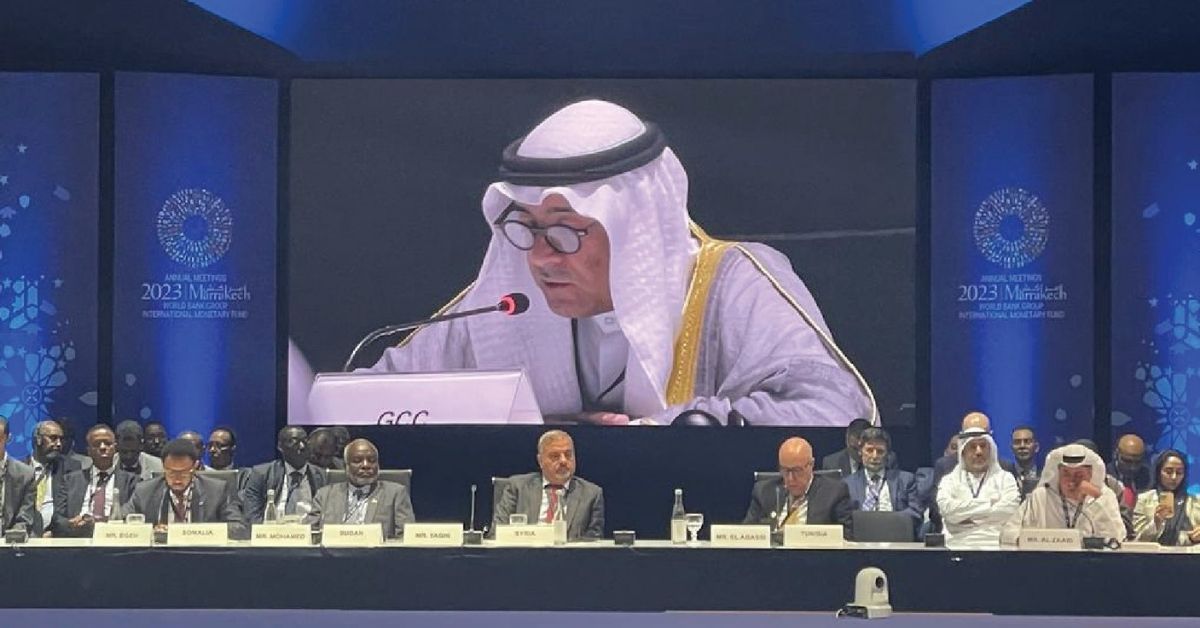Marrakesh – The GCC countries are on a transformative journey, as seen in the evolution of their national economic plans. These plans stem from a solid commitment to progress, setting the stage for rapid socio-economic transformation, said Jassem Mohamed Albudaiwi, Secretary General of the Gulf Cooperation Council (GCC).
Albudaiwi shared these insights during a meeting in Marrakesh, Morocco. This gathering, on the sidelines of the IMF and World Bank meetings, was attended by ministers and governors from the Middle East and North Africa (MENA) region, as well as the Director General of the International Monetary Fund, Kristalina Georgieva.
He emphasized that the GCC nations exemplify financial prudence. Their continuous efforts to boost non-oil revenues, reform tax policies, and modernize and digitize global finances have fortified their financial standing and ensured robust financial and external buffers.
Albudaiwi also remarked that the GCC economies’ policies have remained resilient, skillfully navigating economic challenges and recovering from the COVID-19 pandemic. This recovery occurred despite global inflationary pressures and a staggered, uneven global rebound.
Also Read GCC states post 7.3 percent GDP growth in 2022: Albudaiwi
He spotlighted the rising non-oil contributions to the GDP in GCC countries and their dedication to economic diversification. He referenced a statement by the IMF’s Middle East and Central Asia Department director, noting that the average non-oil growth in GCC countries over the past two years has outpaced the growth averages of the global and advanced economies.
Furthermore, he emphasized that inflation in the GCC nations is well-managed, unemployment rates are dropping, and the financial sector continues to be robust.
Albudaiwi highlighted the 2022 FIFA World Cup in Qatar, which boosted tourism and infrastructure in the region and presented it on a global stage. He also mentioned that the UAE is set to host the 2023 United Nations Climate Change Conference (COP28) this year, offering another platform to showcase the nations’ dedication and efforts to address global challenges.
Additionally, he underscored the GCC countries’ dedication to enhancing multilateral cooperation. This commitment is evident in their response to the IMF’s call to support the Rapid Growth Team and the Poverty Reduction and Regional Support Team. He spotlighted significant contributions from Saudi Arabia, Qatar, UAE, and Oman.
Albudaiwi also expressed the GCC general secretariat’s eagerness to collaborate closely with the recently inaugurated IMF Regional Office in Riyadh. This collaboration, along with the IMF’s Central Financing Center in Kuwait, aims to deepen the engagement of GCC countries with the IMF.







